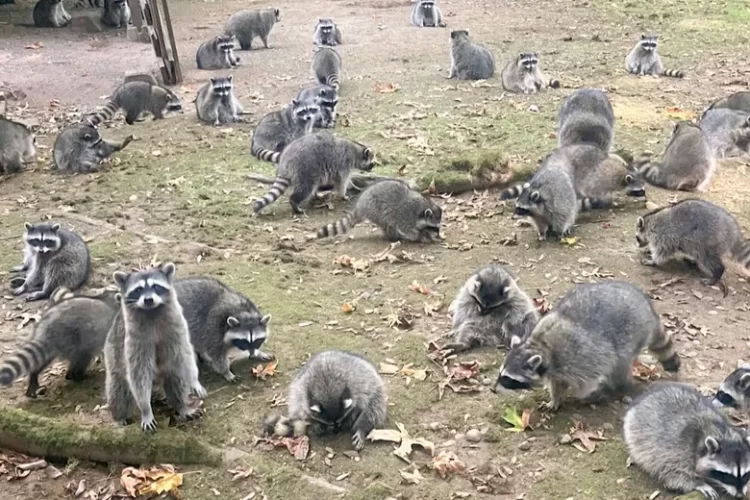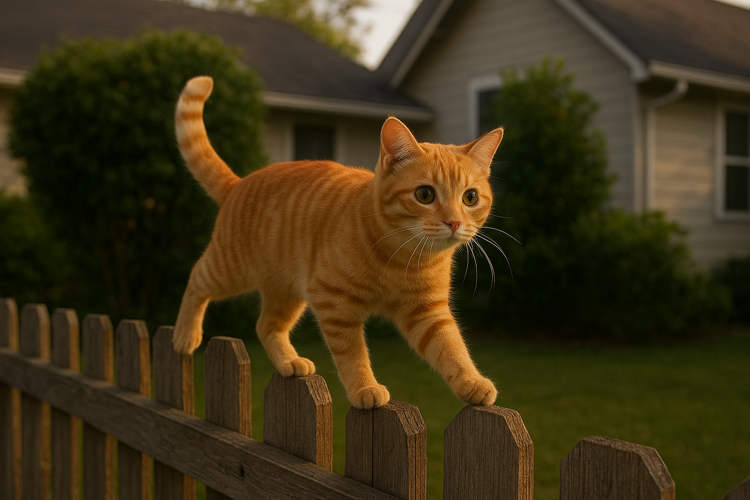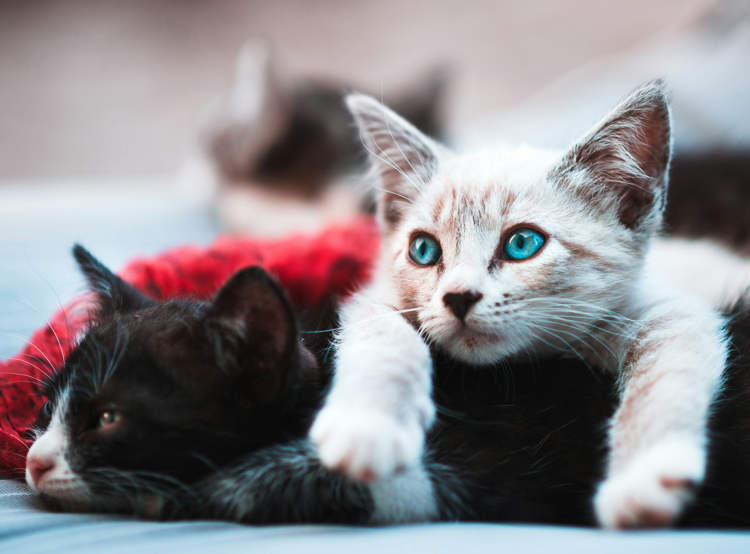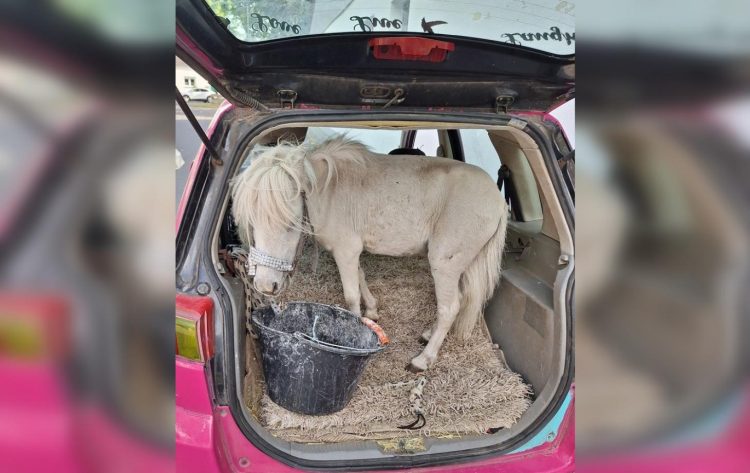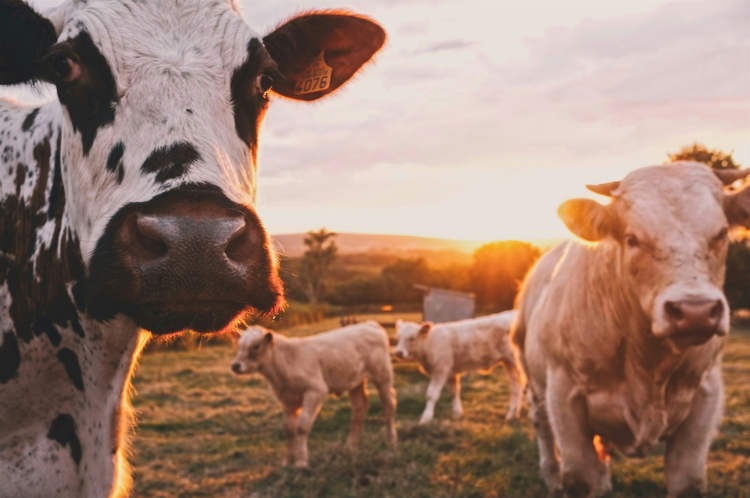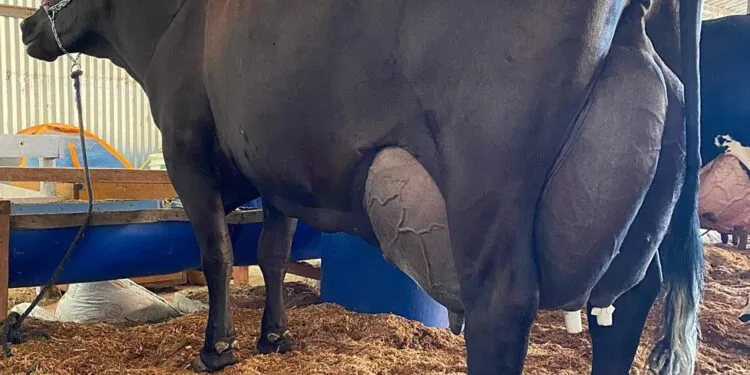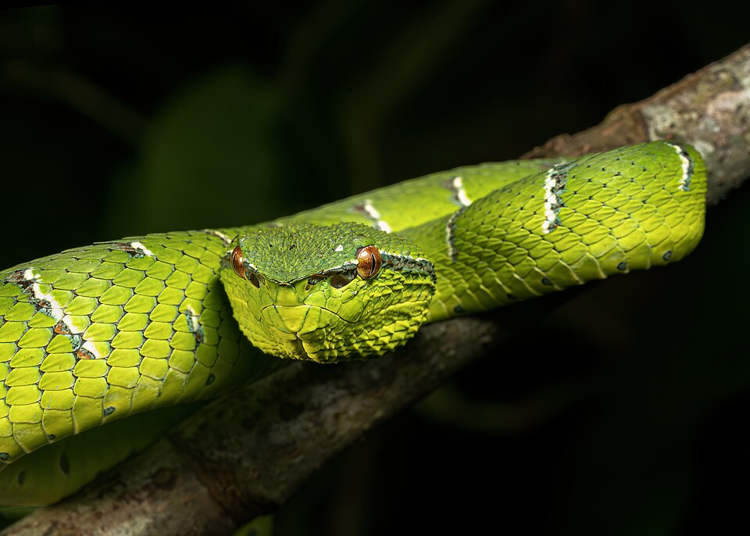A Washington state woman ended up calling emergency services after having her property invaded by around 100 raccoons acting aggressively and expecting to be fed.
Police in Poulsbo, a small town in Washington State, get calls about animal-related incidents all the time, but last week was the first time a local phoned 911 to report dozens of aggressive raccoons converging on her property and preventing her from entering her own home. The woman, whose name has not been revealed, had been feeding a family of raccoons for about 35 years, but about six weeks ago, their number started growing until it surpassed 100 hungry rodents all waiting to be fed. The animals started becoming aggressive if they didn’t receive food, and things got so bad that the woman couldn’t leave her house or move around her property freely.
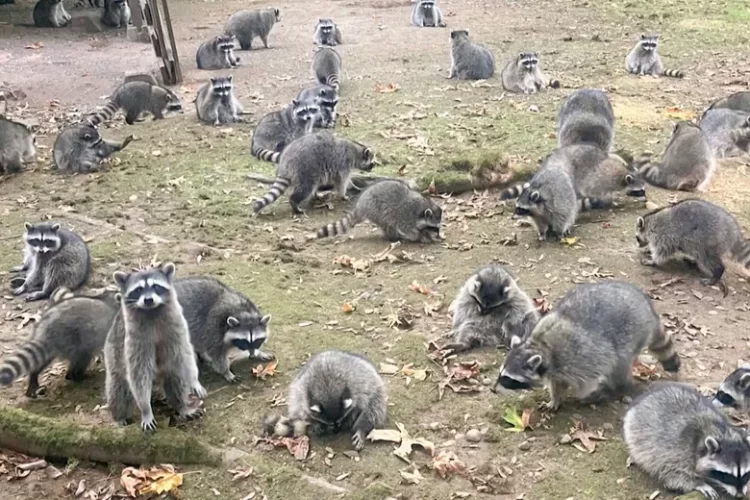
“She said those raccoons were becoming increasingly more aggressive, demanding food, that they would hound her day and night — scratching at the outside of her home, at the door. If she pulled up her car, they would surround the car, scratch at the car, surround her if she went from her front door to her car or went outside at all,” Kevin McCarty, a spokesperson for the Poulsbo sheriff’s office told the Associated Press. “They saw this as a food source now, so they kept coming back to it and they kept expecting food.”
Raccoons are a common sight in Poulsbo, but when deputies arrived at the unnamed woman’s house after her 911 call, they were shocked. They had never seen so many raccoons in one place before, and neither had anyone around town. It was if word about a free buffet had got out in raccoon world and everyone of them wanted to check it out.
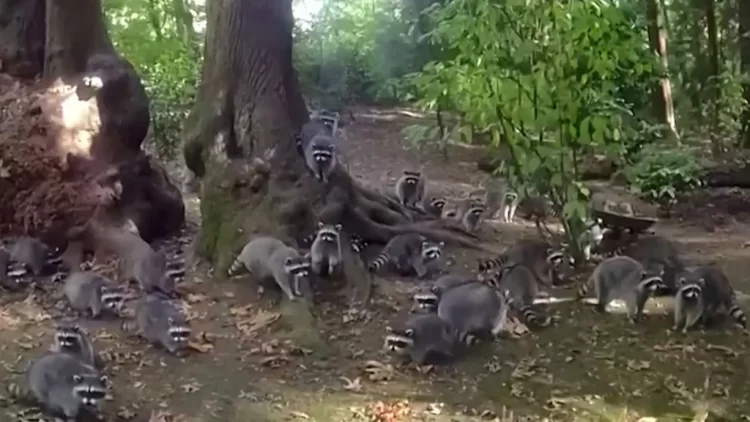
“This is a nuisance problem kind of her own making that she has to deal with,” McCarty said, explaining that while feeding wild rodents isn’t illegal, it is not recommended because the animals quickly get used to the free handout and become dependent on humans. Plus, there is a risk of disease transmission and of discarded food attracting other wild animals.
“It’s pretty simple,” the sheriff’s office spokesperson said. “Don’t feed wild animals. When wild animals have a reliable food source, they’re going to keep coming back to it. And that’s what these raccoons did until the number of raccoons expecting a meal got out of hand.”
After the woman stopped feeding the raccoons, their numbers dropped and soon she was able to move around her property again. Authorities hope that she learned her lesson and she stopped feeding them.

